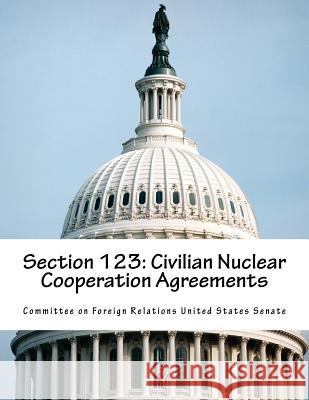Section 123: Civilian Nuclear Cooperation Agreements » książka
Section 123: Civilian Nuclear Cooperation Agreements
ISBN-13: 9781511759601 / Angielski / Miękka / 2016 / 106 str.
Section 123 of the United States Atomic Energy Act of 1954, titled "Cooperation With Other Nations," establishes an agreement for cooperation as a prerequisite for nuclear deals between the US and any other nation. Such an agreement is called a 123 Agreement. Over the last several years, the Obama administration has conducted and recently completed a policy review of 123 agreements. One question is how the review dealt with what has become known as the "gold standard." Should the United States require countries with which it enters into 123 agreements to completely forgo enrichment and reprocessing? In the 1970s nonproliferation concerns prompted Congress to pass the Nuclear Nonproliferation Act of 1978 requiring states to comply with much more robust nonproliferation conditions before signing nuclear cooperation agreements with the United States. Iran and North Korea have sought to use the pretense of a civilian nuclear program to work toward nuclear weapons, and the A.Q. Khan network spread nuclear technology across the globe. Another important issue related to 123 agreements is the declining role of the United States in the global export market for nuclear technology. Until the end of the cold war, the United States was the dominant global supplier of commercial nuclear energy technology. Over the last 30 years, we have seen a significant decline in the U.S. share of the market and in our ability to promote national security objectives through peaceful nuclear cooperation.
Zawartość książki może nie spełniać oczekiwań – reklamacje nie obejmują treści, która mogła nie być redakcyjnie ani merytorycznie opracowana.











